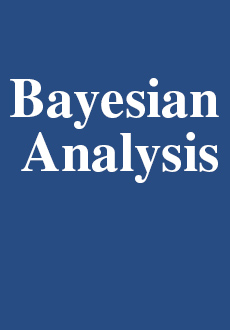Abstract
Most computational approaches to Bayesian experimental design require making posterior calculations repeatedly for a large number of potential designs and/or simulated datasets. This can be expensive and prohibit scaling up these methods to models with many parameters, or designs with many unknowns to select. We introduce an efficient alternative approach without posterior calculations, based on optimising the expected trace of the Fisher information, as discussed by Walker (2016). We illustrate drawbacks of this approach, including lack of invariance to reparameterisation and encouraging designs in which one parameter combination is inferred accurately but not any others. We show these can be avoided by using an adversarial approach: the experimenter must select their design while a critic attempts to select the least favourable parameterisation. We present theoretical properties of this approach and show it can be used with gradient based optimisation methods to find designs efficiently in practice.
Acknowledgments
The authors thank Kevin Wilson, Chris Oates, John Matthews, Phil Dawid, Kyle Cranmer, Iain Murray and journal referees/editors for helpful comments, and gratefully acknowledge an EPSRC studentship supporting Sophie Harbisher.
Citation
Dennis Prangle. Sophie Harbisher. Colin S. Gillespie. "Bayesian Experimental Design Without Posterior Calculations: An Adversarial Approach." Bayesian Anal. 18 (1) 133 - 163, March 2023. https://doi.org/10.1214/22-BA1306
Information





